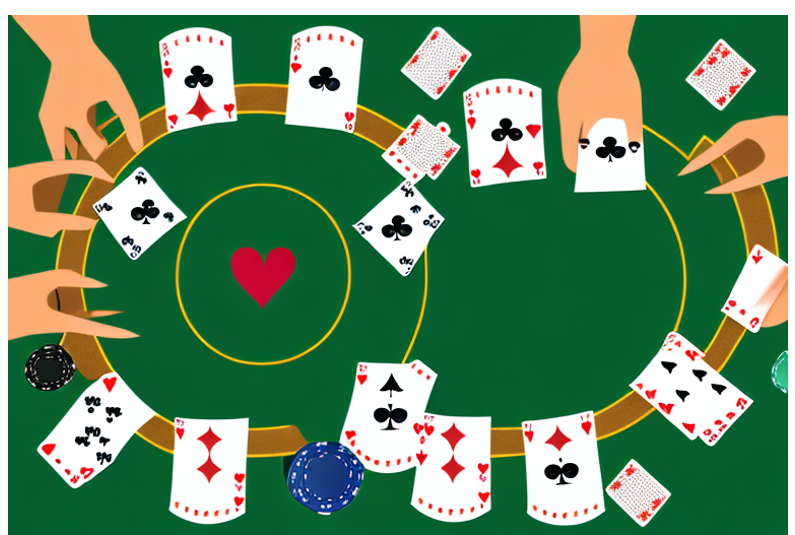Poker is a strategy, skill, and psychological prowess game. Understanding the game’s mechanics, analyzing your opponents, and making strategic moves are at the heart of mastering Poker Sequence. This article will give you a basic understanding of properly playing tight and loose games. Tight games require a very low-risk strategy, while open games require a high-risk strategy. Learning when to use these strategies separates good poker players from great ones. We will go into the critical components that can help you enhance your poker game and grasp the various processes at the table.
1. Starting Hand Selection: The basis for mastering poker sequences is your beginning hand selection. Not all hands are equal, and knowing which hands to play and which to fold is critical. Your table position, opponents’ playing styles, and general table dynamics influence your beginning hand strategy. Tighten your range early on and progressively broaden it as you progress around the table. You are developing a great feel of which hands to play and when will establish the groundwork for future betting rounds of success.
2. Positional Awareness: Positional awareness is beneficial for understanding poker sequences. Your table position heavily influences the quantity of knowledge you have about your opponents’ activities. Later classes allow you to observe how others act before judgment, which can provide helpful information. Use this edge to play more hands and profit from your opponent’s blunders. You’ll have less information to help you make judgments when you’re not in a position. Recognizing and properly utilizing the value of work is a sign of an intelligent poker player.
3. Betting Patterns: Understanding betting patterns is similar to comprehending a Poker games table language. Observing how much your opponents wager, when they bet, and the moves they take in various scenarios can reveal significant information about their hand’s strength. Deviations from their usual conduct might signal a shift in approach. Paying attention to betting trends allows you to make better-educated judgments throughout a hand and modify your system appropriately, giving you a strategic advantage over your opponents.
4. Bluffing and Deception: Bluffing is a subtle technique for learning poker sequences. It should, however, be taken with caution. Knowing when to bluff, who to bluff against, and how much to gamble are all critical aspects of successful bluffing—keeping your opponents guessing by striking the correct mix between bluffing and playing powerful cards. Avoid being predictable by strategically altering your bluffs. Bluffing adds another degree of intricacy to the game, making it difficult for opponents to understand your intentions.
5. Pot Odds and Implied Odds: Calculating pot odds and implied odds is a mathematical factor that can significantly influence your decision-making. You can make more educated decisions if you understand the link between the size of the pot and the cost of a prospective call. By analyzing potential future wagers you may win if you hit your drawing hand, you can add depth to your strategic thinking. This statistical technique guides your selections and improves your overall poker profitability.
6. Adapting to Opponents: Adaptability is a critical trait in the ever-changing terrain of a poker game. Each opponent is unique, and you must change your plan to exploit their strengths and weaknesses. Play a more extensive range of hands against tight opponents to take advantage of their caution. Tighten up against aggressive opponents to allow them to make mistakes. A competent poker player can adapt to the shifting dynamics of the table. You must constantly monitor and change your plan to stay ahead of the competition.
Conclusion:
Mastering poker sequences requires strategic thinking, psychological awareness, and a thorough grasp of the game’s mechanics. You may develop a well-rounded skill set at the poker table by focusing on beginning hand selection, positional awareness, betting patterns, bluffing and deception, pot odds, implied odds, and opponent adaptation. Remember that mastery in poker is a lifelong endeavor that needs devotion, observation, and dedication to constant progress. As you include these crucial factors into your games, you’ll find yourself making better-educated judgments and, as a result, having more success mastering poker sequences.


